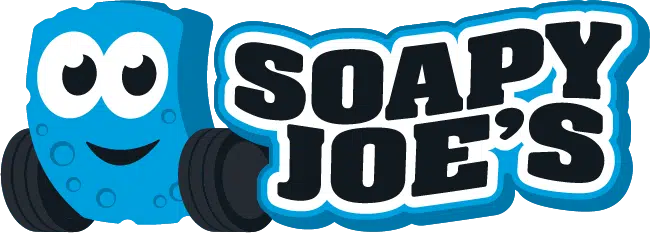Employee success can be elusive for people with disabilities. Historically, organizations were hesitant to hire this population. That’s changing. Of the 10.6 million working-age people with disabilities in the United States, just 35 percent were employed in 2022. But in 2023, that number rose to 38 percent.
Why? Faced with labor shortages, many companies include people of diverse abilities in their workforces. Greater adoption of inclusive business practices, including widespread acceptance of remote work and availability of assistive technology, has further propelled the shift—resulting in employee success that, in turn, leads to employer success.
How? Companies that staff people with disabilities consistently show increases in productivity and profit margins, while absenteeism and turnover decline. Other benefits include boosted morale, appeal to socially conscious investors, and employer tax incentives.
At three California-based businesses, none of this is news.
Angie’s Story: The Morning Light
Raley’s has fostered an inclusive workforce for decades, including hiring, training, and managing employees with various physical and intellectual disabilities.
Companies that staff people with disabilities consistently show increases in productivity, while absenteeism and turnover decline. Other benefits include boosted morale, appeal to socially conscious investors, and employer tax incentives.
When it comes to employee success, Angela “Angie” Rao is a shining example. Angie, who has a developmental disability, has worked for Raley’s supermarket as a courtesy clerk for 32 years.
“When I started, there were no computers,” Angie said. “You wrote down your shift requests and recorded your hours on little pieces of paper.” As the role of technology has grown in the business, Angie has grown with it.
“I call her my morning light,” said Danielle Bergmann, store team leader at the Carmichael, California Bel Air Market, one of Raley’s brands. “She’s probably one of the top five courtesy clerks I’ve ever had.” That’s saying a lot, as Bergmann has worked for the company for 28 years. “She’s on time, eager to work, she has a smile for everyone, and the customers love her to the point of asking about her if she’s not there one day.”
Bergmann’s experience with Angie is consistent with the data. Punctuality, loyalty, and customer satisfaction are part and parcel of including people of all abilities in the workplace.
Jesus’s Story: Top Salesperson
Speaking of customer satisfaction, there’s Jesus Navarro who has been working at Soapy Joe’s, a top carwash in San Diego, since 2022. Jesus leads the company in sales of memberships that give customers discounted pre-paid car washes and give Soapy Joe’s recurring revenue.
“It’s easy,” Jesus said. “Memberships save customers time and money.”
Jesus’ enthusiasm has proven contagious at Soapy Joe’s, promoting a friendly rivalry to see how many memberships employees can sell. And his work ethic has led him into a supervisor training program. In fact, Jesus has recently trained three Soapy Joe’s employees—all of whom are now top sellers, too.
“He knows how to talk to people,” said Ysabel Perry, a PRIDE Industries employment coach who has worked with Jesus. “He has a great, optimistic attitude, too. Given some challenges he’s been through, that’s one of the things I most admire about him. He’s very likable.”
The rest of Jesus’s team agrees.
“In the small amount of time I’ve had working with Jesus, he’s brought purpose to my job,” said Mauricio Cardenas, Area Manager for Soapy Joe’s. “The whole team loves him.”
Jesus’ story is yet another example of how employee success for one can snowball into success for many.
Brendan’s Employee Success Story
Production Worker Brendan Ford is one of the “hardest workers you’re going to find” at Acushnet Golf. Acushnet, manufacturer of Titleist golf clubs among others, is the only original equipment manufacturer (OEM) of golf clubs left in the United States—equipment that the likes of Tiger Woods and Phil Mickelson forged their success with.
Retention in manufacturing is a constant challenge, but not for Doug Jacot, Acushnet’s Director of Manufacturing. Jacot has been hiring people with disabilities for more than 20 years. “They are the most can-do group I’ve ever been around,” he said. “And they elevate the attitudes of everyone around them. If I could hire a hundred of them, I would.”
At Acushnet, employee success looks like Brendan Ford. It also looks like this: Every day, a team of five employees with disabilities builds about 1,000 boxes and 3,000 packaging inserts at the company’s San Diego County manufacturing facility.
“They’re not going to have any attendance issues. They’re going to be there bright and early—ready to work,” said Elizabeth Valverde, a PRIDE Industries Workforce Inclusion Employment Coach Assistant Manager that supports the team.
For Brendan, the payoff is well worth his hard work. “It lets me do more independent stuff,” he said.
Employee Success Translates to Employer Success
Smart companies are increasingly turning to people with disabilities as a steady pipeline of frontline workers.
It should come as no surprise. Employees with disabilities offer companies several benefits—high retention, punctuality, and loyalty—that directly impact the bottom line. When analyst firm Accenture measured the business benefits to employers that actively hire and support employees with disabilities, it found that these “Disability Champions” routinely achieve higher revenue, net income, and profit margins than companies that don’t actively include this population. Its 2023 report found that “The business case for hiring persons with disabilities has become even stronger,” with Disability Champions experiencing the following outcomes as compared to their peers:
- 6x higher revenue
- 6x more net income
- 2x better profit margins
All of these gains are higher than in Accenture’s previous 2018 report.
PRIDE Industries’ employment partner program helps companies like Raley’s, Soapy Joe’s, and Acushnet recruit, hire, train, and support employees with disabilities on the job, taking much of the uncertainty employers might have about engaging this exceptional talent pool. For more information about working with PRIDE Industries for your employment needs, contact us.

